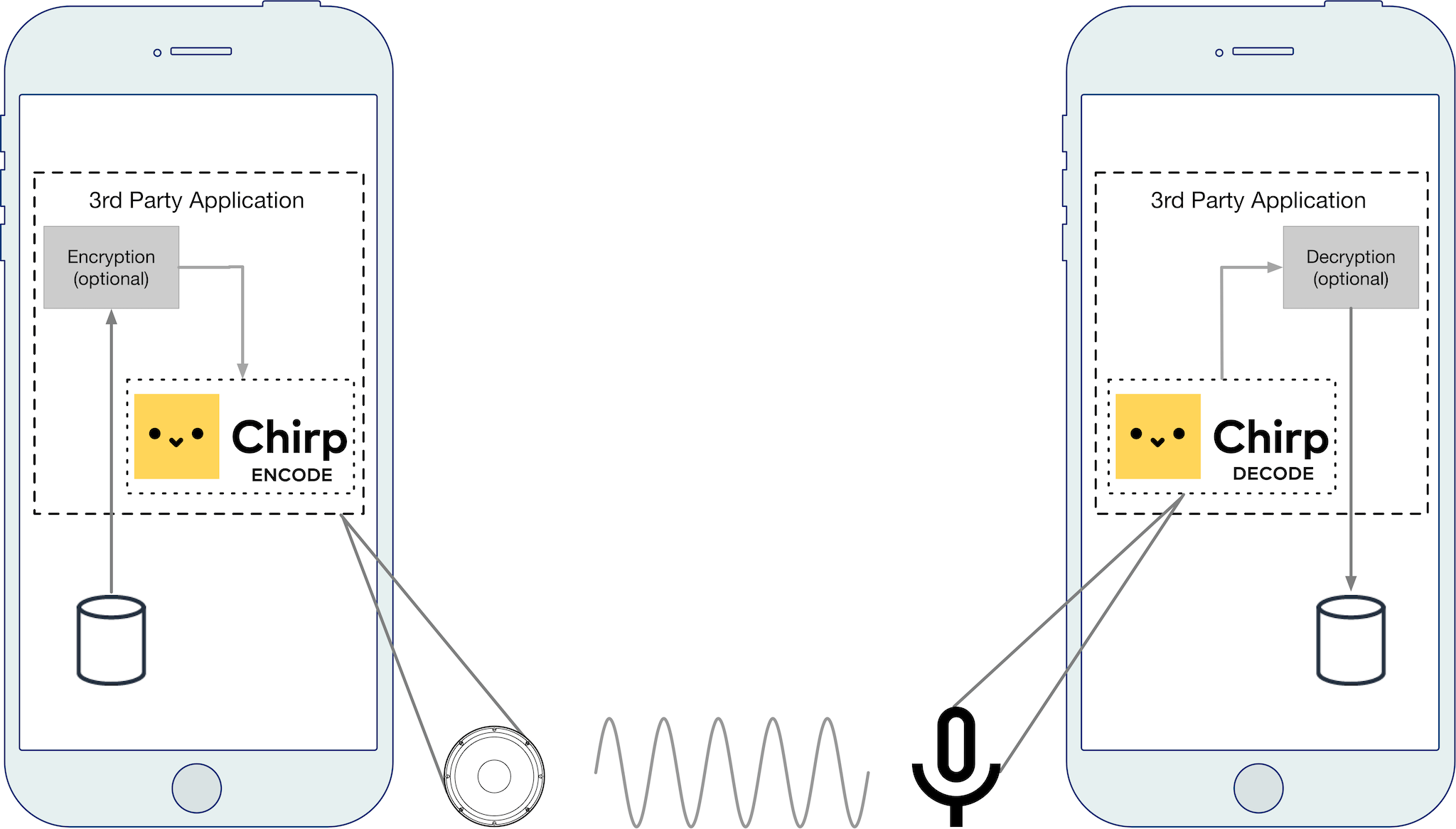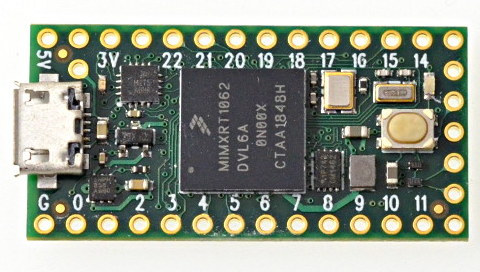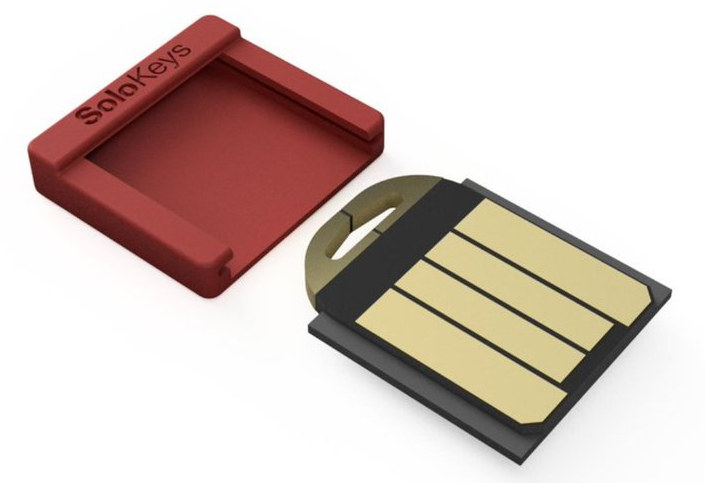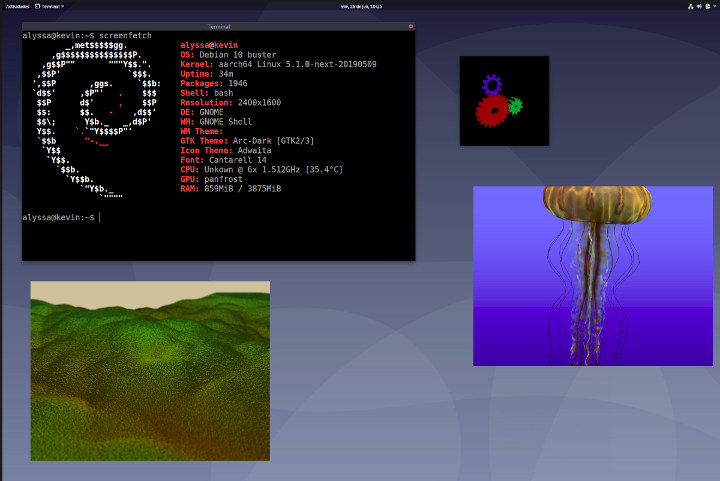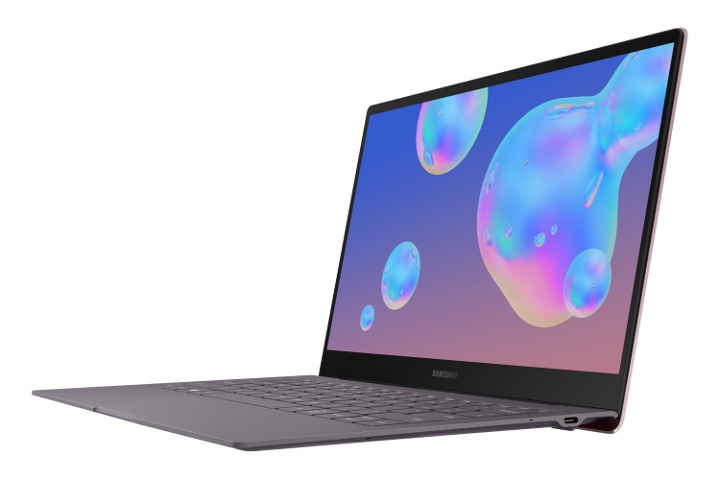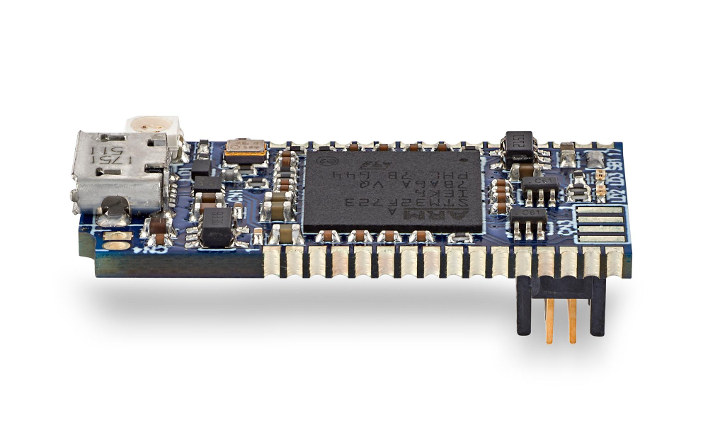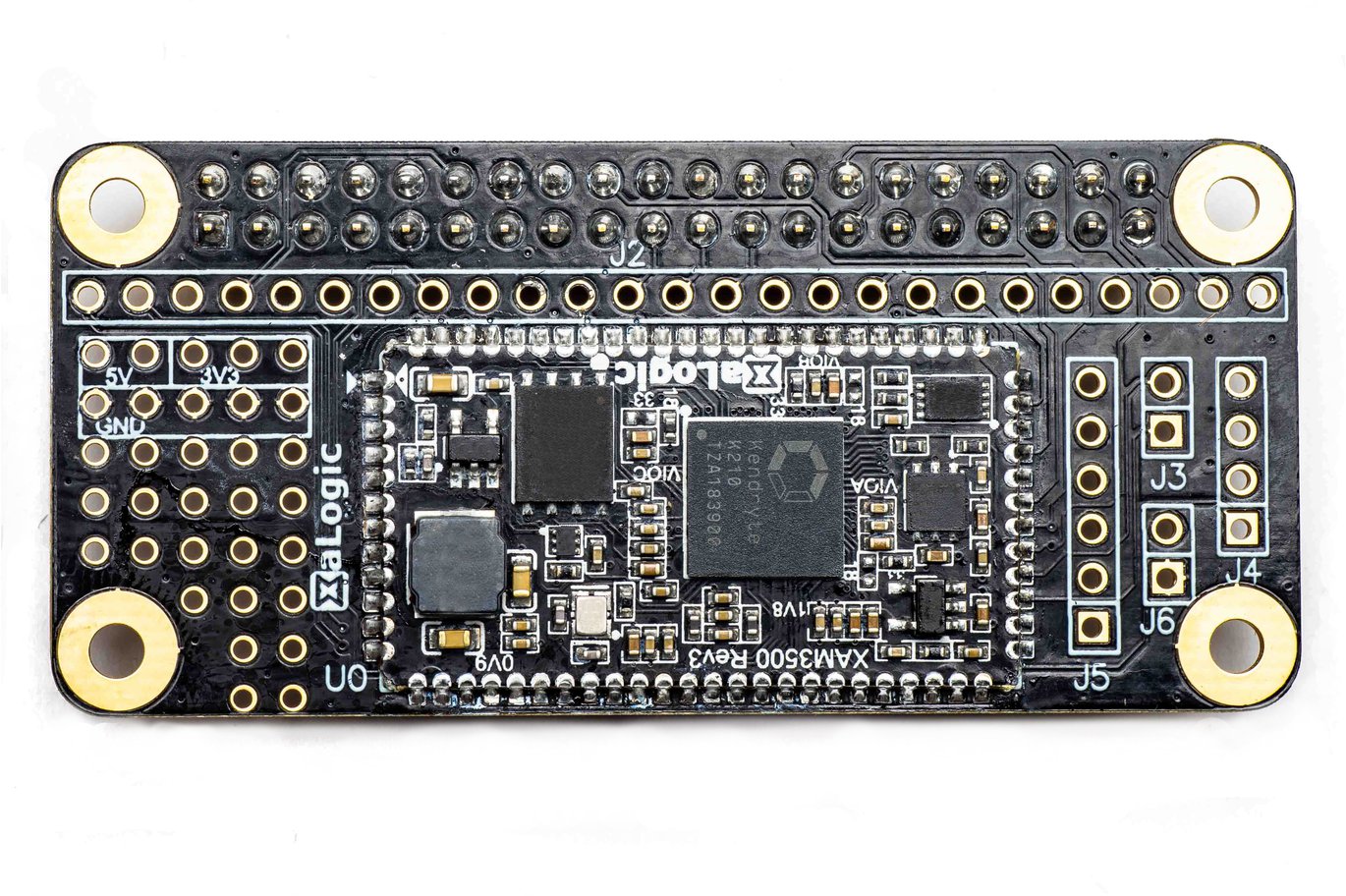Announced on August 12, 2019, Arduino has partnered with the London-based Chirp, a wireless data-over-sound software solution for machine-to-machine connectivity. The system has the ability to work online or offline, as long as there is a loudspeaker and a microphone available. The software works with the Arduino Nano 33 BLE Sense board in send and receive mode, while most Arduino MKR boards and Arduino Nano 33 IoT will also be supported by the SDK, but only to send data. The software and board are fully compatible with SDKs from a wide variety of platforms. The Nano 33 BLE Sense is available for purchase from the Arduino website, for $29.50. The sensor-rich Arduino Nano 33 BLE Sense is application-ready right out of the box, and Chirp is ready to start sending encoded data from a device fitted with an audio speaker, to the board’s built-in microphone, where it is encoded and […]
Teensy 4.0 Launched for $20 with a Much Faster NXP i.MX RT1062 Arm Cortex-M7 Processor
We last wrote about Teensy boards in 2016 for the launch of Teensy 3.5 & 3.6 boards powered by NXP Kinetis K64/K66 Arm Cortex-M4 microcontroller, and a longer form factor. Paul Stoffregen has now upped the ante with Teensy 4.0 featuring a much more powerful NXP i.MX RT1062 Cortex-M7 cross-over processor clocked at 600 MHz, and going back to the original, and more compact, form factor of earlier Teensy boards such as Teensy 3.2. Teensy 4.0 hardware specifications: SoC – NXP i.MX RT1062 Arm Cortex-M7 processor at 600 MHz with 1024KB RAM (512KB is tightly coupled), Storage – 2048KB serial flash (64KB reserved for recovery & EEPROM emulation) USB – 1x micro USB port for power and programming Expansion via through-holes and pads USB – 2x USB ports, both 480 MBit/sec Storage – 1x SDIO (4 bit) native SD Audio – 2x I2S Digital Audio, 1x S/PDIF Digital Audio Serial […]
Linaro Connect San Diego 2019 Schedule – IoT, AI, Optimizations, Compilers and More
Linaro has recently released the full schedule of Linaro Connect San Diego 2019 that will take place on September 23-27. Even if you can’t attend, it’s always interested to check out the schedule to find out what interesting work is done on Arm Linux, Zephyr OS, and so on. So I’ve created my own virtual schedule with some of the most relevant and interesting sessions of the five-day event. Monday, September 23 14:00 – 14:25 – SAN19-101 Thermal Governors: How to pick the right one by Keerthy Jagadeesh, Software Engineer, Texas Instruments With higher Gigahertz and multiple cores packed in a SoC the need for thermal management for Arm based SoCs gets more and more critical. Thermal governors that define the policy for thermal management play a pivotal role in ensuring thermal safety of the device. Choosing the right one ensures the device performs optimally with in the thermal budget. […]
Somu Tiny Open Source FIDO2 Security Key Enables Passwordless Login & Two-factor Authentication (Crowdfunding)
Tomu is a tiny, open source USB connector-sized board powered by a Silicon Labs Happy Gecko Cortex-M0+ MCU that adds two keys to your computer and can work as a Universal 2nd Factor (U2F) token to support two-factor authentication (2FA). But the board is not secure enough for FIDO2 support, and Tomu’s developer worked on a secure USB key called Solokey, and shrank it to Tomu form factor. Meet Somu open-source and secure key with FIDO2 support for compatibility with your Google, Twitter, and GitHub accounts for two-factor authentication, or your Microsoft account passwordless login. Somu hardware specifications: Secure MCU – STMicro STM32L432KC Arm Cortex-M4 microcontroller with TRNG, security isolation for keys, two levels of locked flash Crypto Algorithms – ECC P256 (as per FIDO2 standard) Supported Protocols – FIDO2, U2F Host Interface – USB type-A port Misc – Two touch buttons ( in FIDO2 firmware the two buttons behave […]
Rock Pi 4 SBC Runs GNOME & KDE Plasma using Panfrost Open Source GPU Driver & Wayland
One of the highlights of Linux 5.2 release was support for two new Arm Mali GPU open-source drivers, namely Lima for Mali-4xx GPU, and Panfrost for the Midgard Mali-T6xx/7xx/8xx series, and the more recent Bifrost Mali-Gxx GPUs. Collabora worked on the release and was donated a few Rock Pi 4 boards from Radxa directly to work on the project. For those who are not familiar, Rock Pi 4 board is powered by a Rockchip RK3399 processor with a Mali-T860MP4 GPU that is supported by Panfrost open source GPU driver. The company managed to have Debian 10 Buster running on Rock Pi 4 using 3D graphics acceleration thanks to Panfrost drivers on both GNOME and KDE Plasma desktop environment, as well as Weston Wayland compositer. The good news is that you can build Rock Pi 4 images by yourself using Debos with the following commands:
|
1 2 3 |
git clone https://gitlab.collabora.com/rockpi/rockpi4 cd rockpi4 docker run --rm --interactive --tty --device /dev/kvm --workdir /recipes --mount "type=bind,source=$(pwd),destination=/recipes" --security-opt label=disable godebos/debos --scratchsize=8G rockpi4.yml |
Alternatively, you could directly download […]
Samsung Galaxy Book S Snapdragon 8cx Laptop to Launch soon for $1,000
Qualcomm Snapdragon 8cx was announced as the first Snapdragon processor specifically designed for connected mobile PCs (aka laptops with cellular connectivity) last December. Earlier this year we got confirmation 8cx would support 5G connectivity as an option, and in May, we got news Lenovo Limitless 5G laptop was coming and got some benchmarks showing Snapdragon 8cx with performance similar to an Intel Core i5 Kaby Lake-R processor (15 Watt TDP) while offering much longer battery life. It’s Samsung turn to announce their Snapdragon 8cx laptop with Samsung Galaxy Book S that will be available this fall for $999 and up. Samsung Galaxy Book S specifications: SoC – Qualcomm Snapdragon 8cx Compute Platform with eight 64-bit Armv8 cores in two clusters: Kryo 495 Gold cores (Cortex-A76 class) @ 2.84 GHz + Kryo 495 cores (Cortex-A55 class) @ 1.8GHz ; 7nm process; 7W TDP System Memory – 8GB RAM (LPDDR4X) Storage – […]
STMicro Launches $10 STLINK-V3mini Mini Probe for STM32 MCUs
Last year, we reported STMicroelectronics launched STLink-V3 debugger & programmer for STM8 & STM32 microcontrollers that added I2C, SPI, and CAN interfaces compared the previous STLink-V2 model. It’s not particularly expensive either at $35, but if you ever wanted something more compact and cheaper, the company has now introduced STLink-V3mini debugger going for under $10. STLINK-V3Mini key features and specifications: JTAG / serial wire debugging (SWD) specific features: 3 V to 3.6 V application voltage support and 5 V tolerant inputs JTAG communication support SWD and serial wire viewer (SWV) communication support Virtual COM port (VCP) specific features: 3 V to 3.6 V application voltage support on the UART interface and 5 V tolerant inputs VCP frequency up to 15 MHz USB – Micro USB 2.0 connector for power and connection to host computer Misc – 2x color LEDs: communication, power; STDC14 signals protection Dimensions – 30 x 15 mm […]
A Compact Machine Learning Accelerator HAT for your Raspberry Pi
AI for the Edge has been a promising playing field where several players are pushing for. Cloud computing has made it possible to train complex machine learning models for various application, although this seems to be working fine, the performance or the possibility of deploying AI applications on the Edge is enormous. AI on the Edge is expected to help reduces the latency involved in the roundtrip to the cloud, saves the bandwidth and cloud storage costs for enterprises, deploy ML models faster, and build robust, intelligent applications. Generally, Edge devices like the Raspberry Pi, Arduinos, and other embedded boards usually can’t run powerful AI applications. They have limited resources and computing power. Fortunately, this is changing with the introduction of AI Accelerators; modern processors that help assist the edge devices by taking over the complex mathematical calculations needed for running AI models. One of such AI accelerator processor is […]


